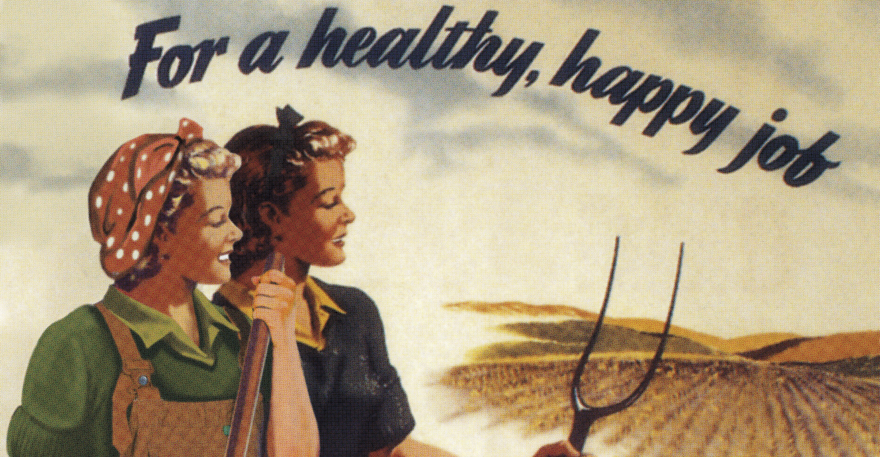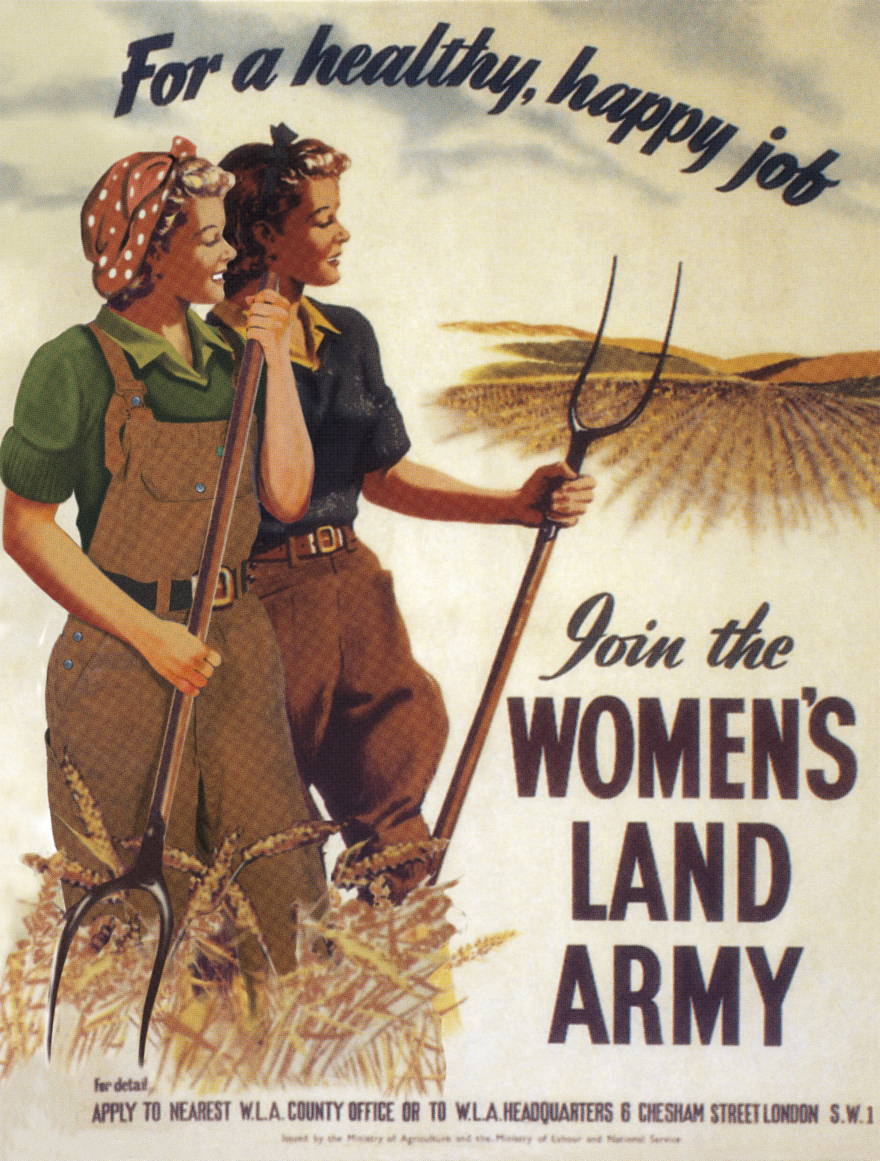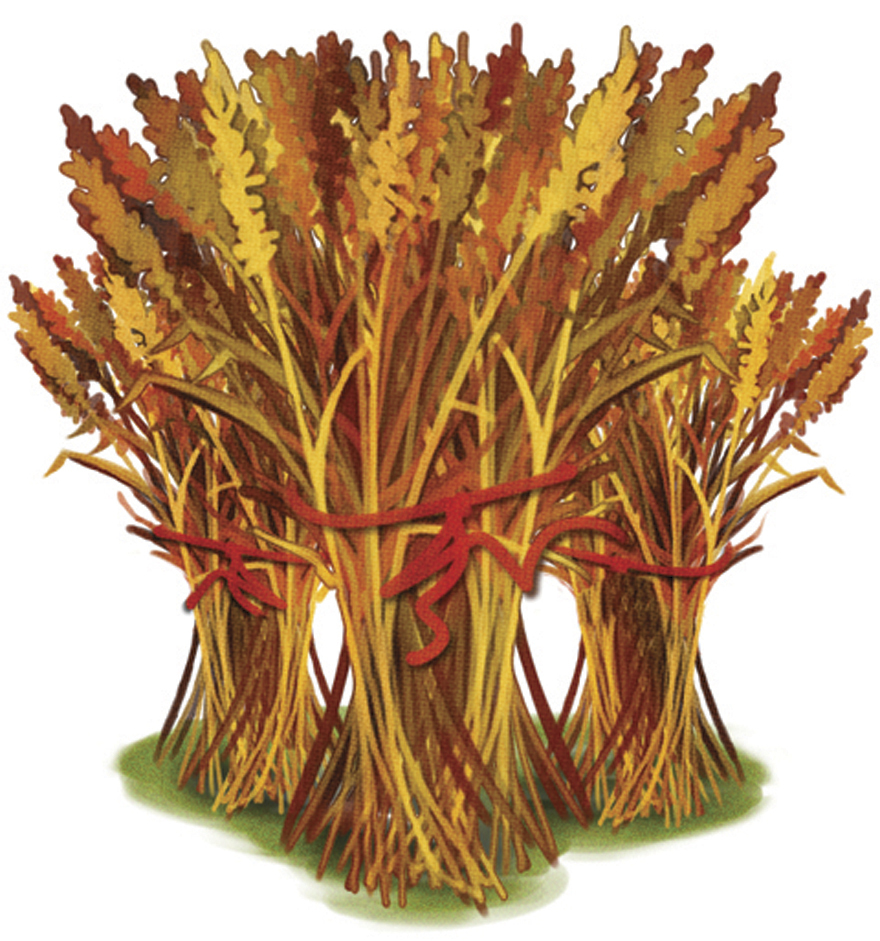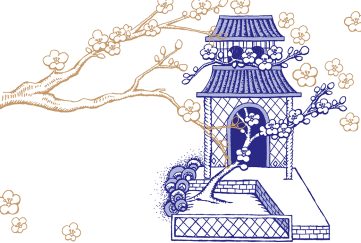We’ll Meet Again

A Fiction Long Read Just For You…
Even an old maiden aunt was a young girl once – and given the chance to tell it, her story might just touch your heart…
By Karen Byrom
Dad had the idea that I should go and help his great-aunt Edie pack up her belongings in preparation for her move to the residential home where she’d see in her ninetieth birthday. She’d fought long and hard to stay in the little cottage that she’d moved into just after the war, but in the end its isolation, narrow doorways and steep stairs to the attic bedroom just proved too much for her.
I didn’t know great-great-aunt Edie well – she was already in her seventies when I came on the scene and, contrary to the stereotype of cuddly old maiden aunts, she had little time for “little ’uns” running around her pristine home.
Still, having left school, I was kicking my heels at home till I found a summer job that would see me through to the start of university, so reluctantly I agreed to go along for a few days.
Aunt Edie didn’t exactly welcome me with open arms, but she did seem glad of my help. Regal-like, she sat in her upright parlour chair by the fire – blazing out even on this hot summer day – and directed operations.
Most of the boxes were marked for charity – there wouldn’t be much room for personal belongings where Aunt Edie was going. But I was instructed to carefully wrap her bone china tea set and choicest ornaments for transportation to the Home.
“What about these, Aunt Edie?” I’d come across a box of loose photographs. Flicking through them, I recognised Dad as a child – and there was another, with my gran holding him. Beside the box was a faded leather album, leaves spilling loose to reveal old black and white photographs of people now long gone.
“Those old things. Put them in the bin, Emma!” Aunt Edie commanded sternly. “They’re no use to me.”
“But don’t you want to choose one or two to put in photo frames?” I cajoled. “Then you’ll feel as if you have your family around you.”
If I want my family around me, I’ll ask them to visit!” Aunt Edie snapped.
“Let me take them home tonight then,” I pleaded. “Mum and Dad will want to look through them.”
Wearily, Aunt Edie waved her hand. I took the gesture as assent and pulled the album from the shelf. A large black and white photograph on stiff card fell out. It showed a fair-haired girl in some kind of war-time uniform. Her pose was severe, but there was mischief in her eyes which looked as if they might be blue.
“Is this you, Aunt Edie?” I asked, curious. Her gnarled hand reached out and took the photo from my hand.
“It’s Bunny,” she said, and for the first time since I’d arrived that morning, her voice quavered. I was surprised to see tears in her faded brown eyes.
“Who was she?” I asked.
Aunt Edie shrugged, her momentary weakness gone. “A friend,” she said dismissively, letting the photograph fall to the ground.
But I was tired and thirsty and I sensed a story. So I made us some tea, and knelt at her feet. Picking up the photograph, I asked her, “What’s that uniform Bunny’s wearing?” – craftily coming at the subject from side on.
“Land Army,” Aunt Edie said. “We served together during the war.”
I had heard of the Land Army, of course. Of that brave band of girls who’d left homes and family and town life behind to work on the land so that Britain could be fed during the long years of World War II. But somehow I had never thought of Aunt Edie as a girl.
“Did you know her before that?” I asked, persisting.
“No,” Aunt Edie said. “She arrived at Longtown farm a few days after me. Just after Christmas, it was. Mr Bridges took one look at her and just groaned.” She chuckled. “He already had me, eighteen years old, pint-sized, scrawny and pasty-faced from living in the London smog. And here was Bunny, just a few years older, hair curled beautifully under her bonnet, lipstick perfect, nails polished to perfection as she held out her hand…”
♦ ♦ ♦ ♦ ♦ ♦
“Hello, I’m Bunny. Bunny Chalmers. So pleased to meet you.”
The blonde girl’s voice was rich and plummy. Edie watched open-mouthed as the farmer quickly brushed his dirty palms against his trousers and his wife all but curtsied.
Bunny looked sidelong at Edie and winked. Edie giggled as she followed the small band into the warm and welcoming kitchen. It was going to be fun to have someone of her own age around, even though it was obvious this girl had never done a hand’s turn in her life. What on earth had possessed her to enlist in the Land Army?
Later, sitting on the plump feather bed in the room she was to share with Bunny, Edie watched and listened as the girl unpacked and talked.
“I couldn’t wait to get away from home,” Bunny confided as her quick hands methodically placed her fine silk camisoles and drawers into the dresser. “Father is so stuffy, and Mother forces me to attend all these worthy committee meetings and sewing groups with her. It’s all such a bore, sweetie. And nothing to eat but bloater paste sandwiches!”
She swung round and caught Edie’s hand. “If the Jerry bombs are going to get me, I want to see some life before I die, sweetie. So, here I am.”
If Edie wondered what kind of life Bunny thought she’d see here on a farm, she was too kind to say so. The girl really would have been better off in the WAAF or the WRENS.
But to everyone’s surprise, Bunny took to farm work like a cow to a saltlick. Together, the two girls would jump out of bed to pull on long woollen drawers – Bunny had soon discarded her fancy silk underwear – and creep out together in the early morning to milk the cows before hurrying back to the farmhouse for a quick breakfast, then rushing out again to find out what Mr Bridges had in store for them that day.
They’d fall into bed as the light faded outside, tired but never too exhausted to whisper and giggle together as they shared the day’s experience or told each other about life at home, or confided about their hopes and dreams.
Bunny’s dreams were simple; to get out and see life, away from her smart but stultifying middle-class upbringing. Her father was a doctor, her mother a housewife and she was their only child, brought up to please, but chafing under their restraint.
Edie came from a large and noisy family. Her father was a stevedore at London docks, worked long, hard hours; her mother sweated out her days in a hotel. Edie loved and missed her parents, but for her the farm was a haven where she was well fed and warm and, like Bunny, she didn’t mind the hard work. Her dream was to stay in the country – she never wanted to go back to the city.
Once every few weeks, the two girls would dress in their best and Bunny would sit Edie down to slick on some lipstick, laughing when tomboy Edie hastily wiped most of it away on the back of her hand.
“Sweetie!” she’d exclaim. “You are gorgeous!”
Then they’d dance the night away together at the local town dance hall. Bunny taught Edie how to do the jive and the foxtrot, and a new dance called the Lindy Hop, imported by the Americans from the air station nearby.
Those airmen would often ask Bunny to dance, and Edie too, sometimes, but the girls always refused. At work and at play they were inseparable, arms linked as they wandered back to the farm along dark country lanes, ever mindful of Mrs Bridges’ curfew.
They were there the whole war long. They had leave, of course, and sometimes went home. Once or twice Edie’s family came by to visit her, but Bunny’s never did.
“They don’t approve of moi country ways, m’dear.” She parodied the Norfolk accent. “They think Norfolk be full of manure and mad cows.” She winked at Edie. “They could be right, sweetie – you’re the maddest cow I know.”
“Cheek!” Edie playfully belted her around the ear and the two girls collapsed, laughing, into the pile of hay they’d been stacking, where Bunny wriggled on to her back and sucked at a stalk of hay.
“What are you going to do after discharge, Edie?” she asked. “Will you stay on at the farm?”
“I don’t know,” Edie said, her voice uncertain. “I’d like to, but the Bridges boys will come home, so they may not need me any more. What about you? Will you go home?”
Bunny turned her head to look at her friend.
Now, you know me better than that, Edie. No, I’m going to find a job and a place of my own somewhere.”
“Where?” Edie asked in a small voice.
Bunny looked at her in genuine surprise. “Why, near here, of course. Near you. You don’t think I’d ever leave you, Edie, do you?”
Edie’s eyes filled with sudden tears. Bunny put out her hand and gently stroked her cheek. “We’ll never be parted, Edie.” She grinned mischievously. “If those Yanks couldn’t come between us, then nothing will.”
It was soon settled. Bunny found a small cottage for rent on the outskirts of the local market town, and a job with the local baker. Edie was to move in with her and cycle to the Bridges’ farm each day, at least till their boys came home.
Together Bunny and Edie scoured second-hand shops and auctions for furniture, knick-knacks and treasures to make their house a home. Excitedly, they purchased linen and towels, pottery and knives and forks with their hard-earned cash. Soon the small cottage was ready for them to move into.
Then, as they stood, cases packed, to stay goodbye to kind old Mr and Mrs Bridges, a bomb was dropped – one far more destructive than anything Hitler could have unleashed on them in six long years of war.
Mr and Mrs Chalmers arrived to take their daughter home.
No amount of cajoling and pleading on Bunny’s part would make them leave without her. Bunny had served her country, and now they insisted it was time for her to come home.
Besides, they’d had a letter, they said, from the local minister’s house, hinting that all was not well with Bunny’s new domestic arrangements. They eyed Mr and Mrs Bridges with scorn and implied that they should have taken better care of their daughter. They didn’t even look at Edie as they bundled Bunny into the car and drove off.
The last sight Edie had of her beloved friend was a sad white face and two hands pressed up against the window as Bunny mouthed desperately that she would return as soon as she could.
♦ ♦ ♦ ♦ ♦ ♦
The small parlour was still. I took Aunt Edie’s hand and, for a wonder, she didn’t shake me off.
“Did Bunny ever come back?” I whispered, but I already knew what the answer was.
A tear rolled down Edie’s cheek.
“I never saw her again. Her parents kept her away somehow – she was so under their thumb at home. And then a few weeks later… well, I got word from Mr and Mrs Bridges that Bunny was dead… she’d caught a cold and it had turned to pneumonia. So she wouldn’t ever be coming back…”
Surprisingly strong for an old lady, Aunt Edie banged her cup down on the coffee table. “That’s enough ancient history. Back to work, Miss. You young folk just don’t know what work is!”
She never noticed that I’d slipped Bunny’s photograph into my bag. I’d get it framed, I decided. Then at least she’d have Bunny with her for this move.
♦ ♦ ♦ ♦ ♦ ♦
Aunt Edie never did make it to the residential home. The day after I’d helped her pack up her few possessions, she slipped peacefully away in her sleep.
After the funeral, I asked Mum and Dad to leave me by the graveside by myself for a little while.
Kneeling on the earth, I gently let Bunny’s photograph fall into the grave. As I got up and turned away I swear I heard a giggle and a laughing command, “Don’t wriggle so, Edie, or your lipstick will smudge.”
Were my Aunt Edie and her beloved Bunny together at last?
A Word From The Author…
“Attending a close friend’s civil partnership celebrations, I thought how sad it was that, not all that long ago, some people were unable to express their love openly, let alone be together.”
Read our Quick Twist In The Tale story…






